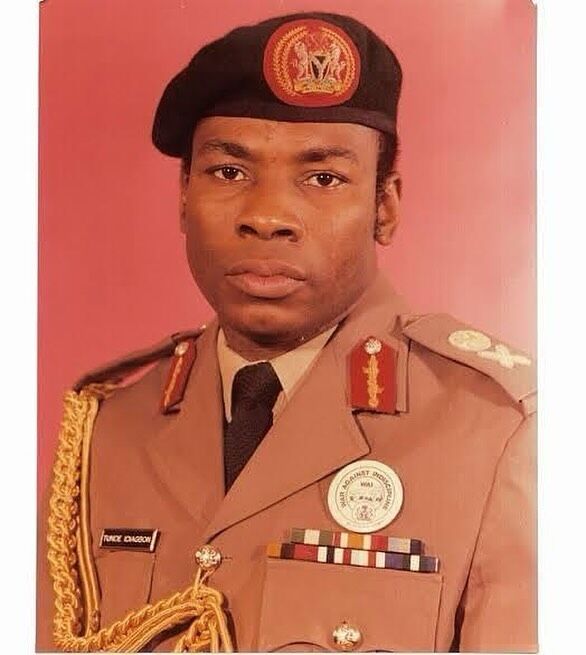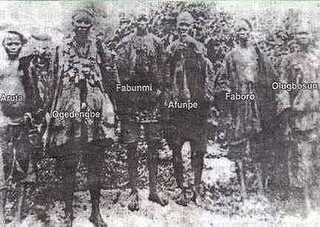Born Prince Fábùnmi Ìṣọ̀lá, also called Orara l’ada, Fabunmi of Okemesi (1849–1903) was an Ekiti warlord, chief, and eventually king. He was credited for starting the Kiriji War, the longest civil war in Nigeria and West Africa. In 1849, Prince Fabunmi Isola was born at Okemesi, which was earlier known as Imesi-igbodo to Fatimehin Aponlese, the 9th Owa Ooye of Okemesi, and his younger brother, Prince Adesoye. A princess from the town of Ogotun-Ekiti was his mother. When Ijesa overran Okemesi, he was around ten years old, and he and his father fled to Ila Orangun.Fabunmi, the eldest of his family, inherited a great deal of riches and slaves after his father passed away at Ila. His mother was an Ogotun princess.He learned how to tailor while he was in Ila. Prince Adeyale of Ila, who went on to head the Ila army militarily, was very close to him. He then went to Ibadan to work as a war boy for Balogun Ibikunle’s second son, Akintola. He participated in military missions to Iperu and Mamu. There were intentions to execute him and offer him as a sacrifice to a local deity, so he quickly fled Ibadan overnight. After returning to Okemesi from Ibadan, he worked as a tailor and an embroiderer while building his militia force out of the slaves his father had left behind, as well as some relatives and young people who were keen to join him. His mother was an Ogotun princess.He learned how to tailor while he was in Ila. Prince Adeyale of Ila, who went on to head the Ila army militarily, was very close to him. He then went to Ibadan to work as a war boy for Balogun Ibikunle’s second son, Akintola. He participated in military missions to Iperu and Mamu. There were intentions to execute him and offer him as a sacrifice to a local deity, so he quickly fled Ibadan overnight. After returning to Okemesi from Ibadan, he worked as a tailor and an embroiderer while building his militia force out of the slaves his father had left behind, as well as some relatives and young people who were keen to join him. Fabunmi gained notoriety in 1878 as the one person who started the Kiriji war in Yorubaland.The lads of Ibadan Administrator Oyepetun (Ajele), who was based in Okemesi, were greedy and malevolent; they forcibly stole other people’s property.They had stolen food and palm wine intended for the occasion while they were visiting the yearly Erinle-odo shrine festival, where Fabunmi was partying with friends and acquaintances. Falola, Fabunmi’s wife, who provided the food and drinks, was abused in the process.Fabunmi was furious. He grabbed his sword, raced home, and headed for Oyepetun’s compound. He murdered the Ajele as well as everybody else he could get his hands on. Residents of Ibadan left Okemesi, and all other members of Oyepetun’s complex were still alive. Despite being a clear test of Ibadan’s authority, the word swiftly traveled throughout Ekiti, Ijesa, and Igbomina due to the poor management of numerous Ajales.Every known Ibadan officer and everyone suspected of collaborating with them was killed. Olojaoke of Okemesi was summoned by Are Latoosa of Ibadan to bring his nephew Fabunmi, who was a prince and heir apparent to him, but he declined.Fabunmi then proceeded to form an alliance with the forces of Ijebu, Egba, and Ilorin, leading the eastern Yoruba army into a coalition known as Ekitiparapo.The Igbajo, Iresi, Otan, and Ada kingdoms were swiftly overrun by the Ekitiparapo army as it advanced via Imesi-ile, but they were routed when Ibadan…


